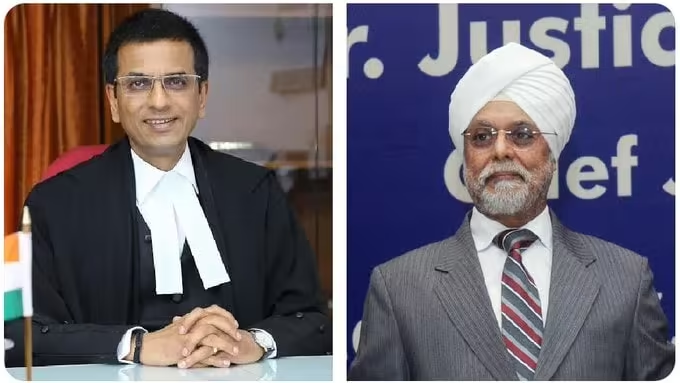Former Chief Justices Caution Against Excessive Election Commission Powers
- July 11, 2025
- 0

Former Chief Justices of India, DY Chandrachud and JS Khehar, have expressed concerns regarding the proposed powers of the Election Commission of India (ECI) under the One Nation, One Election system. During a meeting with the Joint Parliamentary Committee (JPC), they emphasized the need for checks and balances to prevent the ECI from wielding excessive authority. This discussion is part of the JPC’s examination of the Constitution (One Hundred and Twenty-Ninth Amendment) Bill, 2024, and the Union Territories Laws (Amendment) Bill, 2024.
The JPC, led by BJP MP PP Chaudhary, is consulting with legal experts and jurists to formulate recommendations on the bill aimed at synchronizing elections for state legislative assemblies and Parliament. Both former Chief Justices highlighted the importance of an oversight mechanism to ensure fair conduct of elections. They also stressed that a five-year term for elected governments is crucial for effective governance.
Ex-Chief Justice Ranjan Gogoi had previously questioned the sweeping powers proposed for the ECI in the constitutional amendment. The former judges’ suggestions align with his views, advocating for a balanced approach to election management. They warned that reducing government terms could hinder meaningful projects due to frequent enforcement of the Model Code of Conduct.
PP Chaudhary acknowledged the suggestions from the former Chief Justices, stating that amendments would be made if necessary to protect national interests. He reiterated that the One Nation, One Election system is vital for nation-building and maintaining constitutional integrity over time. The committee plans to submit its report to Parliament after considering these recommendations.
While some opposition leaders argue that synchronizing elections violates the Constitution’s basic structure, jurists appearing before the committee have dismissed these claims. They assert that the Constitution does not mandate separate national and state elections. The committee’s ongoing discussions reflect a broader debate on electoral reforms in India.